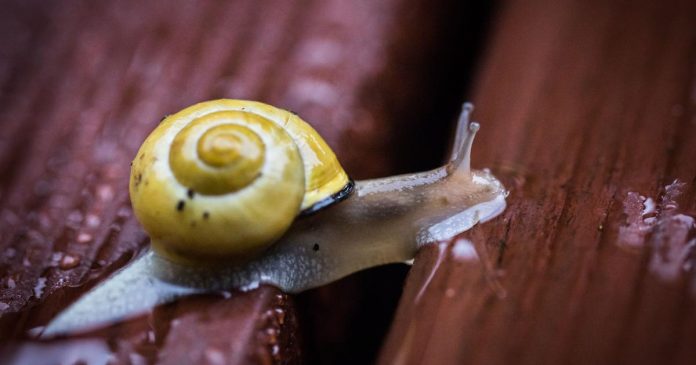In a statement released Tuesday,the Detroit Zoo announced that it had sent one-hundred land snails to Tahiti to repopulate their native habitat. The snails belong to a species, Partula nodosa, that had been extinct in the wild for more than twenty years.
The announcement was more than twenty-five years in the making. In 1989, the Detroit Zoo received specimens of P. nodosa as part of a collaborative effort with other zoos to save the species from extinction. By the time the snail was declared extinct in the wild in 1994, all the P. nodosa on the planet resided at the Detroit Zoo.
“Our efforts and successful breeding of the snails resulted in the rescue and recovery of the species,” said Scott Carter, Detroit Zoological Society (DZS) chief life sciences officer in a statement. “Currently there are six thousand individuals living in North American zoos, all descendants from the Detroit Zoo’s original small group.”
Before its extinction in the wild, the Tahitians used the striped shells of P. nodosa and its relatives in the snail family Partulidae as decorations and ceremonial jewelry. Scientists studied the 125 species of partulid snails found on islands across the South Pacific as examples of the evolution of biodiversity.
While the tale of the recovery of P. nodosa goes back more than twenty-five years, the tale of the snail’s decline begins nearly fifty years ago in 1967. That was the year when the Giant African Land Snail (Achatina fulica) was introduced to Tahiti and other South Pacific islands as source of protein. That effort went awry when the snails escaped and became crop pests, threatening the island’s agricultural economy.
Rosy Wolf Snails (Euglandina rosea) were introduced to Tahiti from Florida in 1977 to control the Giant African Land Snails. Unfortunately, the Rosy Wolf Snails found the native snails, including P. nodosa, easier prey and hunted four of the islands eight species of Partula to extinction.
The snails are being reintroduced to a reserve that is free of Rosy Wolf Snails. “With the sufficient growth of the captive population and the establishment of a protected area on Tahiti, this species is officially on the road to being saved,” said Carter in a statement.















